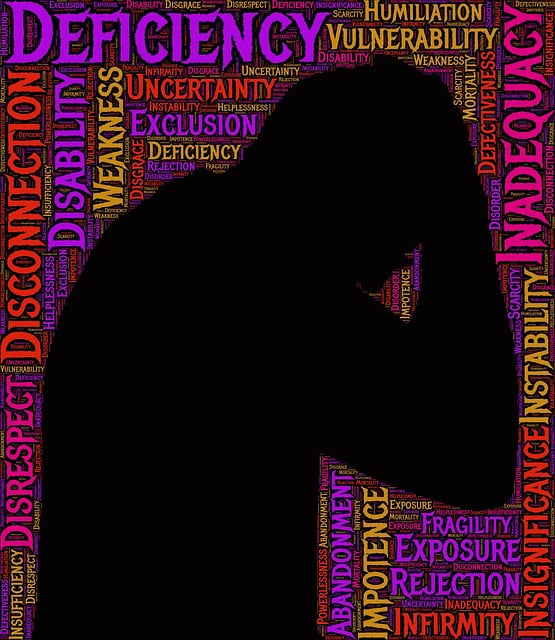Evaluating mental wellness programs, such as Colorado Springs ADD-ADHD Therapy, is crucial for improving services and patient outcomes. This involves tracking KPIs like symptom reduction, client satisfaction, academic achievements, and program reach, especially in underserved communities. Pre- and post-program surveys measure changes in mood, anxiety, stress management, and quality of life. Additionally, monitoring engagement rates and adherence to activities provides insights into the program's appeal and effectiveness, enabling healthcare providers to refine interventions for better mental health outcomes.
Mental wellness program evaluations are crucial for measuring effectiveness and driving improvement. This comprehensive guide explores four evaluation methods for mental health initiatives, including quantitative and qualitative approaches. We discuss assessing program impact through key performance indicators (KPIs) and engagement rates, analyzing qualitative feedback from participants and staff, comparing outcomes against standards like the Colorado Springs ADD-ADHD Therapy program, and conducting long-term follow-ups to ensure sustainability. By employing these methods, organizations can optimize their mental wellness programs for better outcomes.
- Assessing Program Impact: Metrics and Surveys
- – Defining key performance indicators (KPIs) for mental wellness programs
- – Administering pre- and post-program surveys to measure changes in participant well-being
- – Tracking engagement rates and program adherence as evaluation tools
Assessing Program Impact: Metrics and Surveys

Evaluating the impact of a mental wellness program is crucial for understanding its effectiveness and making informed improvements. Metrics play a significant role in quantifying outcomes, offering data-driven insights into various aspects of participant experiences. These metrics can include changes in mood, anxiety levels, stress management skills, and overall quality of life. For instance, tracking pre-and post-program assessments using standardized scales can reveal substantial improvements in symptoms related to conditions like ADD/ADHD in Colorado Springs.
Surveys are another powerful tool for gathering qualitative feedback from program participants. They allow individuals to share their personal experiences, perceptions, and suggestions for enhancement. By incorporating questions about satisfaction levels, perceived benefits, and areas of growth, survey data can offer valuable insights into the program’s strengths and weaknesses. This information is essential for refining and tailoring mental wellness interventions, ensuring they meet the unique needs of those seeking support, whether it be for ADD/ADHD or broader mindfulness practices like meditation and positive thinking.
– Defining key performance indicators (KPIs) for mental wellness programs

Evaluating mental wellness programs requires a clear definition of Key Performance Indicators (KPIs) to measure their effectiveness. These KPIs should encompass various aspects of mental health and well-being, such as client satisfaction, clinical outcomes, and program reach. For instance, in Colorado Springs ADD-ADHD Therapy, KPIs might include tracking the reduction in ADHD symptoms, improved school performance, and client ratings of therapist empathy and support. Regularly collecting and analyzing these metrics allows healthcare providers to understand the program’s impact and make data-driven adjustments.
Beyond individual outcomes, KPI considerations should also include community impact and sustainability. This includes assessing how well the program reaches underserved populations, its integration with local schools and healthcare systems, and its ability to foster long-term mental wellness. For example, a successful mental wellness program might not only focus on depression prevention but also on building cultural competency among healthcare providers through training like Colorado Springs ADD-ADHD Therapy’s initiatives, ensuring inclusive and effective care for diverse communities.
– Administering pre- and post-program surveys to measure changes in participant well-being

Evaluating a mental wellness program’s effectiveness is crucial, and one powerful method involves administering pre- and post-program surveys to participants. These surveys aim to uncover changes in their overall well-being and specific aspects of mental health. By comparing responses, healthcare providers in Colorado Springs ADD-ADHD Therapy can gauge the program’s impact on symptoms, life satisfaction, and emotional resilience. This qualitative assessment offers valuable insights, especially when combined with quantitative data from other evaluation methods.
For instance, surveys might include questions about stress levels, mood stability, and self-care practices before and after the program. The Mental Wellness Podcast Series Production often emphasizes such evaluations to ensure that the offered services align with participants’ needs. Similarly, Healthcare Provider Cultural Competency Training encourages these assessments to promote better patient outcomes, as it helps identify areas for improvement in care delivery. Ultimately, Self-Care Routine Development for Better Mental Health is supported by rigorous evaluation methods, ensuring that programs effectively empower individuals to take charge of their mental wellness.
– Tracking engagement rates and program adherence as evaluation tools

Evaluating mental wellness programs is an essential step in understanding their effectiveness and impact on participants’ lives. One effective method to assess a program’s success is by tracking engagement rates and adherence to the proposed activities. By monitoring how many individuals actively participate and consistently engage with the program, evaluators can gain valuable insights into its appeal and potential benefits. For instance, high attendance rates at Colorado Springs ADD-ADHD Therapy sessions could indicate that the program is filling a critical need in the community, effectively addressing attention-related issues through structured therapy.
Furthermore, tracking program adherence allows for an in-depth look at the types of activities or interventions that resonate most with participants. This could involve assessing completion rates for specific exercises or modules designed to enhance emotional well-being, teach conflict resolution techniques, or cultivate compassion. For example, if a significant portion of participants actively engage in mindfulness practices or compassion cultivation exercises, it suggests these strategies are valuable components of the program, potentially leading to improved mental health outcomes and enhanced life skills.
Evaluating mental wellness programs, such as Colorado Springs ADD-ADHD Therapy initiatives, requires a multifaceted approach. By combining metrics tracking key performance indicators (KPIs), pre- and post-program surveys to gauge well-being changes, and monitoring engagement rates, practitioners can gain valuable insights into program effectiveness. This data-driven method ensures that resources are allocated efficiently and allows for continuous improvement in supporting participants’ mental health journeys.










